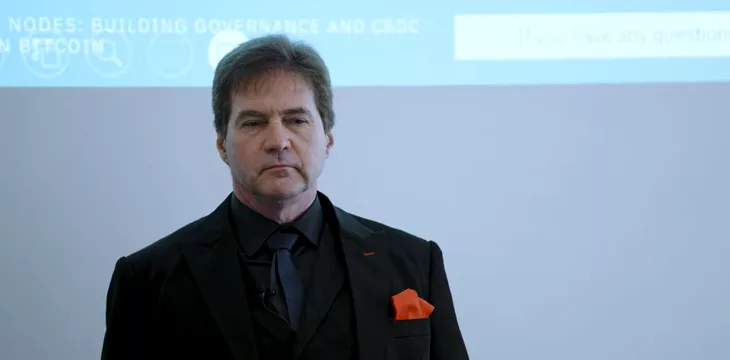|
Getting your Trinity Audio player ready...
|
The 7th installment of The Bitcoin Masterclasses returned to London on July 31 and August 1 with a timely theme of “Sovereign Nodes,” including sub-topics such as central bank digital currencies (CBDCs), scalability, and micropayments. Just days before Dr. Craig Wright‘s trip to the Philippines, along with other folks from nChain and Block Dojo, the content was focused on helping governments adopt blockchain, as Dr. Wright and the team will be doing for the Filipino government.
The bulk of the in-person attendees were researchers and product development staff from nChain, many of who are also focused on the Philippines project. As always, all of those in attendance reported immense value from the intimate, two-day immersive experience with Dr. Wright.
“I’ve always said these masterclasses are incredible. You learn a lot of information in a short amount of time. Craig is so insightful and is thinking about things that most people won’t be thinking about for the next 10 to 15 years,” nChain Product Analyst Manager Alec Burns told CoinGeek.
“It’s always amazing to attend Craig’s Masterclass. He is a great speaker, first of all. He manages to engage the audience every time. Whenever he speaks, you always touch different topics,” added Luigi Lunardon, researcher at nChain.
“I work on the overlay network already, and I have my idea, but the depth of what he can bring to the table is essentially shocking, how many new concepts he is introducing, how many points he’s connecting,” Lunardon said.
Kicking off his first two days with nChain at The Bitcoin Masterclasses, Benjamin Brooks, now part of the research team, said the workshop has been a good way to get exposure to all the ideas and insights Dr. Wright has.
“A man with this much knowledge and experience, you wouldn’t expect him to appear so humble, but I get that vibe from him, always wanting to tell people more and wanting to share his knowledge, never discriminating or anything,” Brooks revealed.
Federico Barbacovi also joined the nChain research team recently and was excited to have a chance to meet everyone in the relaxed atmosphere The Bitcoin Masterclasses fosters.
“The Masterclass has been an incredibly good opportunity to meet everyone else on the team and learn a lot of new stuff about Sovereign Nodes and how we can implement it… I’m really happy to be here,” he said.
Dr. Wright chose the topic of Sovereign Nodes strategically, as the concept will hopefully encourage more government adoption of public, scalable blockchain tech.
“I think Sovereign Nodes is one mechanism that we can use for governments to feel comfortable using the blockchain by having nodes that are specific to their jurisdictions where they can have some control over the transactions that are managing in their areas and feel more comfortable using blockchain technology,” shared Burns.
Arthur Roberts, patent attorney at nChain, talked about the idea of each Sovereign Node or group of nodes validating their own transactions before they get committed to the blockchain.
“They can do their own separate steps of validation, and that sounds quite interesting. You can build different systems on top of that, and it sounds like quite a cool application,” Roberts said.
Barbacovi likes the concept of putting another layer on top of the blockchain and differentiating between Sovereign Government Nodes and blockchain miners who are responsible for timestamping the transactions.
“I think this idea is really interesting, and it can empower government to come into the ecosystem and develop new, interesting services that they can deploy for people and citizens and be more transparent to cut costs and be more efficient,” Barbacovi said.
When asked what government services he has in mind when it comes to his Bitcoin technology and Sovereign Nodes, Dr. Wright said it’s “all about simplifying everything” and “making people’s lives easier.”
“So licensing, property, sales, registrations, just dealing with government generally,” he said.
“If we think about the process to go through in buying and selling a house, not all of that goes away. Some of the timeframes of the waiting, etc., it’s there for a purpose. But finding information about a property will become simpler,” Dr. Wright explained.
Looking back at our time at The Bitcoin Masterclass #7, it was about diving into ways blockchain can be applied to everyday life, as pointed out by Brooks.
“People think of [Bitcoin] as this very abstract concept. It can be, but it’s grounded in so many practical uses,” he said.
“We’ve been talking about infrastructure, how granular you can make about telling the world about where money is going and things like this. Information can be put on a blockchain. That’s just one of the ideas, but there’s so much more,” Brooks added.
Watch: The Philippines is ready for blockchain tech, nChain Chairman Stefan Matthews says

 03-04-2026
03-04-2026 




